We have much more to do and your continued support is needed now more than ever.
Education Newsletter Winter 2023
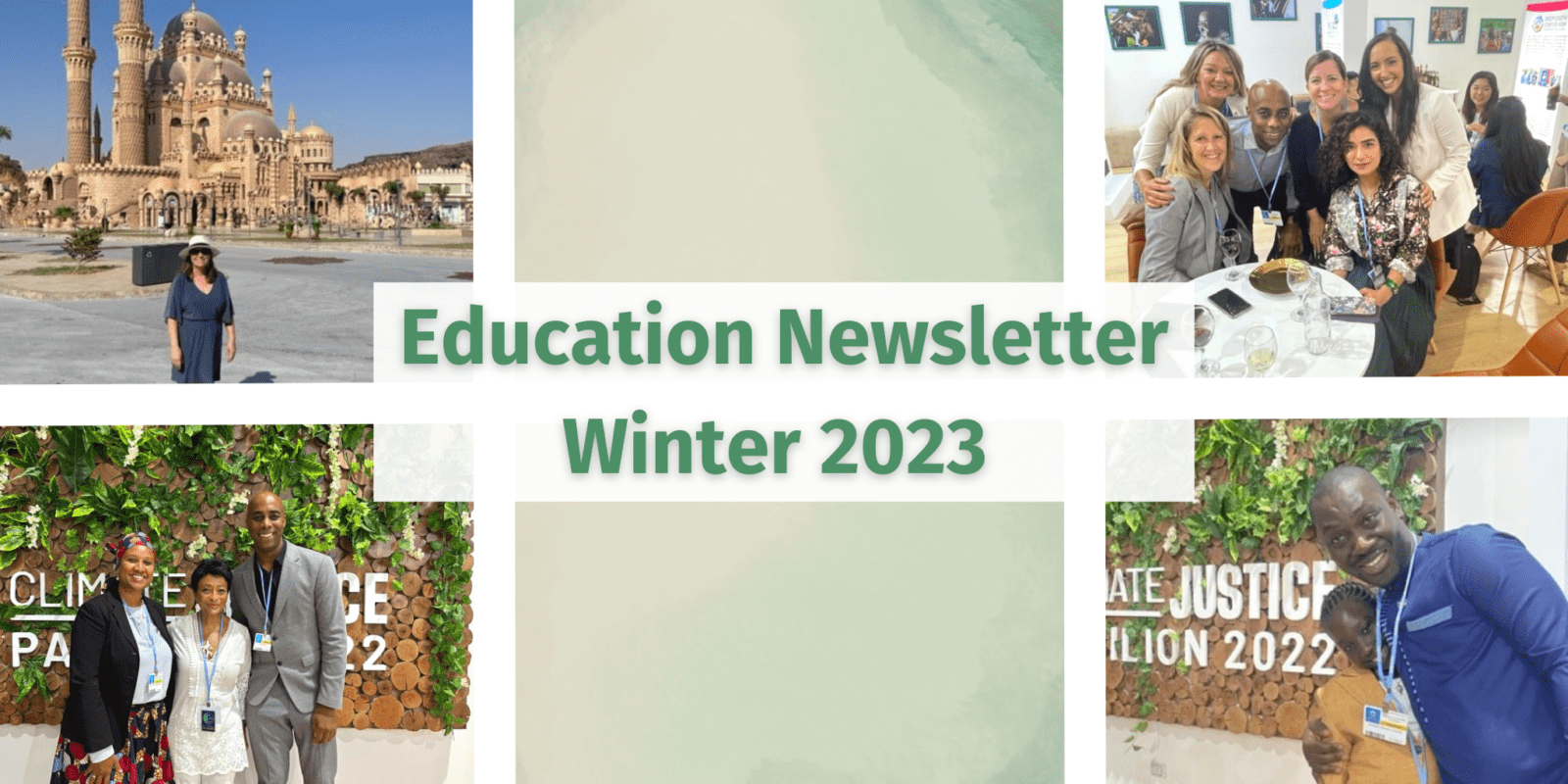
Hello, from the National Wildlife Federation’s Education Team
In this edition, we’re interviewing Kim Martinez, our Vice-President of Education and Engagement. We talk about climate work happening around the world and the role of youth education in addressing the climate crisis. Kim was recently in Egypt for COP27 and part of the launch of the newly formed Climate Equity Collaborative.
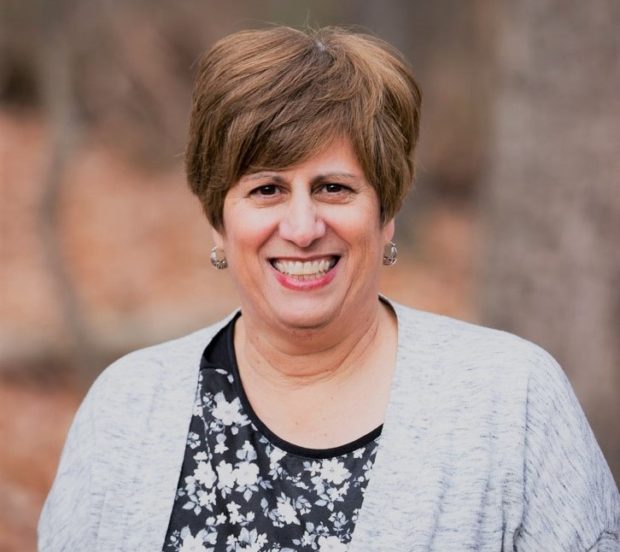
Read on to find connections between the work in Egypt and how students and community members are working to find solutions that address timely issues such as flooding, habitat and biodiversity loss, and environmental injustice made worse by climate change.
— Kath Race
Senior Coordinator, NWF’s Education & Engagement
Climate Justice, Youth Leaders, and Cop27
Hi Kim, thanks for agreeing to be interviewed about the current state of climate justice work and your recent trip to Cop27. Why don’t you tell us about your work as the Vice-President of Education and Engagement at the National Wildlife Federation and what that encompasses?
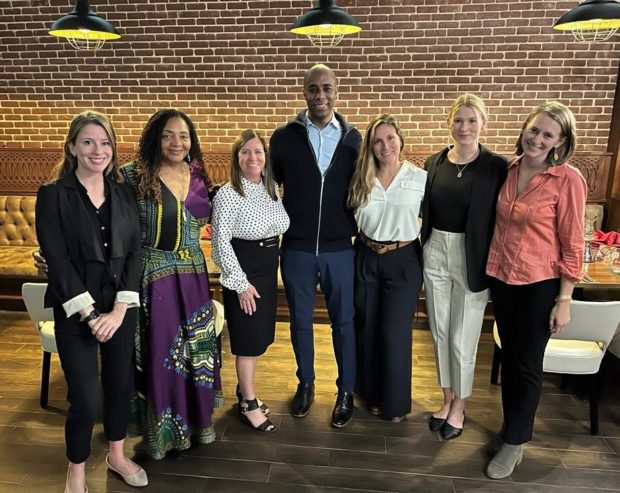
I am honored to be part of a talented team working diligently on programs that bolster education and conservation for the well-being of people, wildlife, and our shared environment. Every day, our highly-capable team is driven to make a difference through innovative programs and campaigns—including Eco-Schools USA, Schoolyard Habitats®️, Community Wildlife Habitat, Campus Race to Zero Waste and others.
Additionally, I lend my expertise within several partner organizations, ranging from Global Environmental Education Partnership to ee360°, and help shape international efforts like the US-Taiwan Eco Campus Program and the Climate Equity Collaborative.
The Climate Equity Collaborative (CEC) was launched in September 2022 and focuses on addressing the disproportionate impacts of climate change on vulnerable communities and youth. What role do education and environmental justice play in the Climate Equity Collaborative, and why are they necessary?
Climate change has a devastating impact on our most vulnerable populations. Children, in particular, are bearing the brunt of temperature spikes, with extreme weather events amplifying existing threats to communities. Even more concerningly, sea level rise has caused climate refugees in North America – Indigenous groups especially – who rely heavily on water for sustenance now facing relocation away from their homes.
The CEC is a powerful network of organizations focused on exploring practical solutions to urgent climate challenges. Representing non-profits, businesses, and government agencies alike – this cross-sector partnership works together to harness the power of education, environmental justice initiatives, and improved children’s wellbeing in order to deliver equitable results for communities hit first and worst by the impacts of climate change.
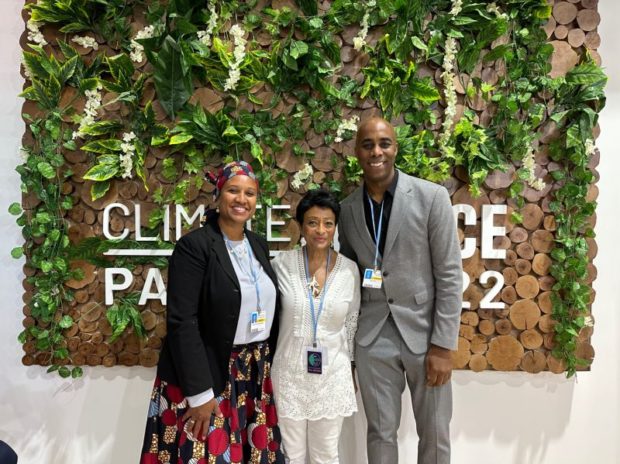
The CEC fosters a people-centered approach to climate action. Through opportunities for engagement, education, resources for leadership development among youth communities, and investments in non-profits that promote environmental justice – CEC seeks to rally stakeholders from all backgrounds into action and create real solutions that will positively benefit those most affected by this urgent issue.
You recently attended COP27 in Sharm El-Sheikh, Egypt. What key takeaways would you like to share?
After two weeks of intense deliberation in Sharm El-Sheikh, Egypt, COP27 resulted in a landmark agreement on climate reparations and nature’s protective value. It keeps the vital goal of 1.5°C warming limit alive but does not go far enough to phase out fossil fuels or ramp up global ambition as recommended by experts. A new review of pledges reveals that if all countries fulfill their promises, our planet could experience a rise in global temperatures up to 2.5°C, an increase which can have serious repercussions on the environment and population alike.
The COP27 Presidency appointed Omnia El Omrani as the inaugural Youth Envoy – an inspiring symbol for future Presidencies to include young leadership in tackling climate change. And, for the first time ever, there was a Climate Justice Pavilion where people from the Global South, the U.S. Environmental Justice Movement, and other international movements could dialogue, build relationships, learn, and share perspectives.
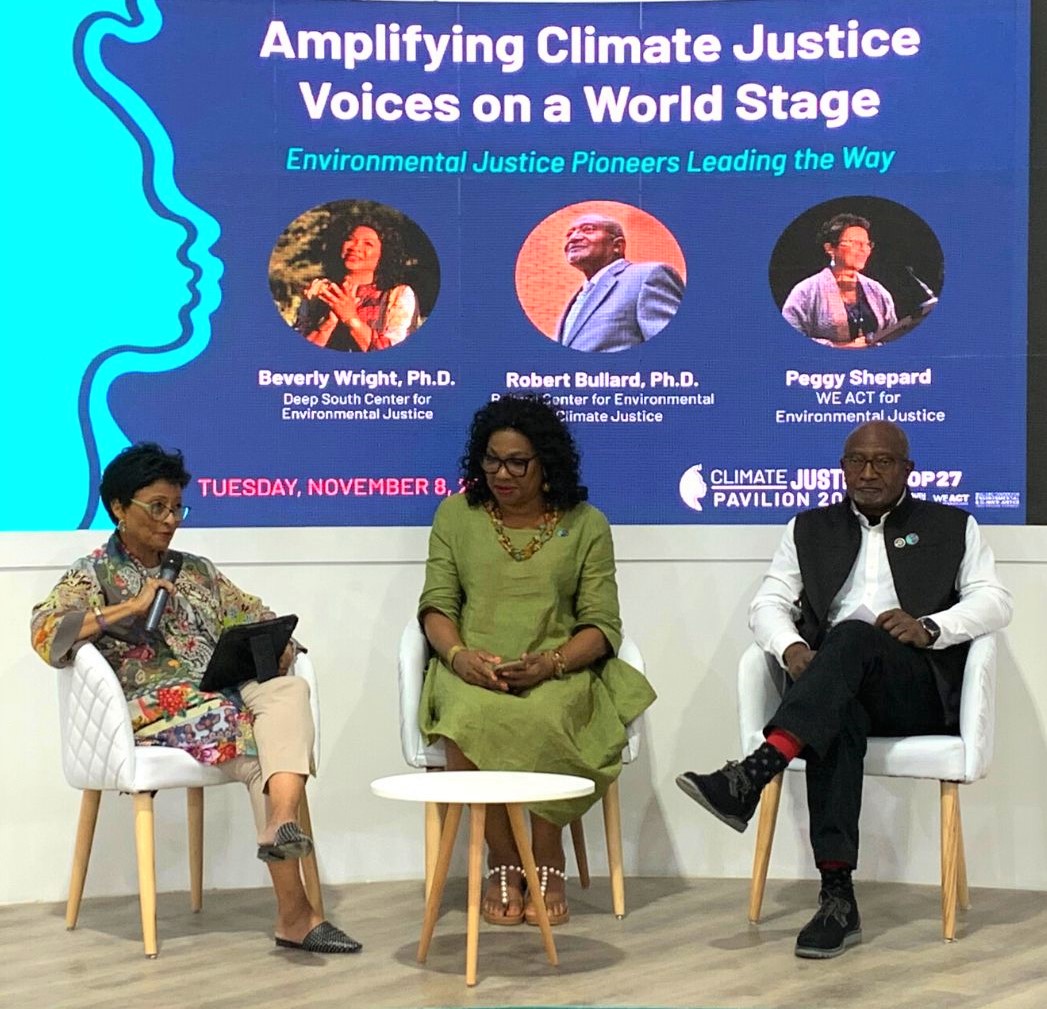
The National Wildlife Federation and the Climate Equity Collaborative (CEC) sponsored the first-ever Climate Justice Pavilion, including a panel with youth leaders from Asia, Africa, and North America. Can you talk about the significance of the youth panels at COP27 and the importance of the youth voice?
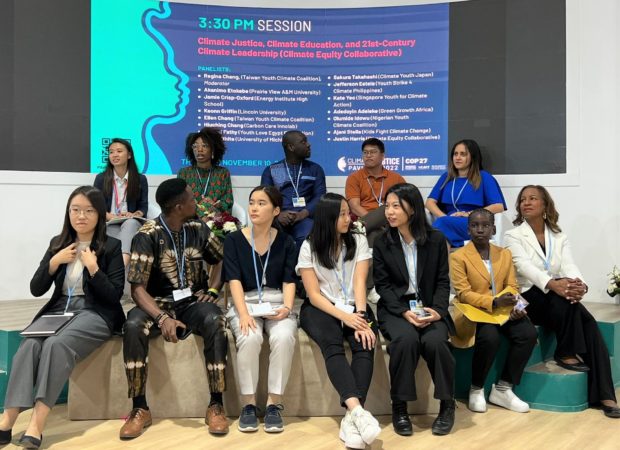
Young people are at the forefront of climate change, with their health and well-being highly dependent on decisions made by policymakers. It is essential to recognize them as a crucial partner in the fight against global warming – one that shapes our current agendas and profoundly influences tomorrows world.
As one of the sponsors of the first-ever Climate Justice Pavilion hosted by The Robert D. Bullard Center for Environmental and Climate Justice, Deep South Center for Environmental Justice, WE ACT, the National Wildlife Federation, and its Climate Equity Collaborative team facilitated several panels including “Climate Justice, Climate Education, and 21st Century Climate Leadership” featuring youth from Asia, Africa, and the U.S.
The event provided a powerful platform for panelists to engage with policymakers and climate leaders around topics ranging from environmental justice issues to economic opportunity in the new green economy. By granting youth an active role in international conversations, we can ensure policies reflect their needs while safeguarding future generations from any adverse effects of climate action.
Why do you think it’s necessary for youth in the U.S. to be informed about the impact of climate change? What can youth leaders do to be part of the solution?
Scientists worldwide agree that immediate and sustained action is required to confront the climate crisis. Policy and technology are not enough; we must also take steps toward inspiring a lasting change in attitude, starting with education. A recent study concluded that if just 16 percent of high school students from high-and middle-income countries received adequate instruction on this topic, there could be an impressive 19 gigaton reduction in carbon dioxide levels by 2050 – demonstrating its powerful impact on our future success against global warming.
Education empowers individuals to form personal connections to sustainability solutions while feeling confident they can make meaningful contributions. The National Wildlife Federation’s Eco-Schools USA program offers a way for youth leaders to get engaged. Eco-Schools is a global, sustainability education program reaching close to 6,000 schools across the country. Eco-Schools provides a seven-step framework that supports an integrated approach to student learning, building important skills such as problem solving, teamwork, and critical thinking that allows students to effectively apply their learning and experiences in their own communities.
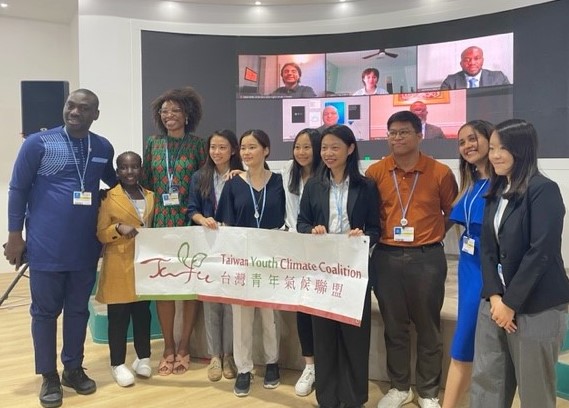
What is the one message you want to convey about the importance of youth education and how it addresses the climate crisis?
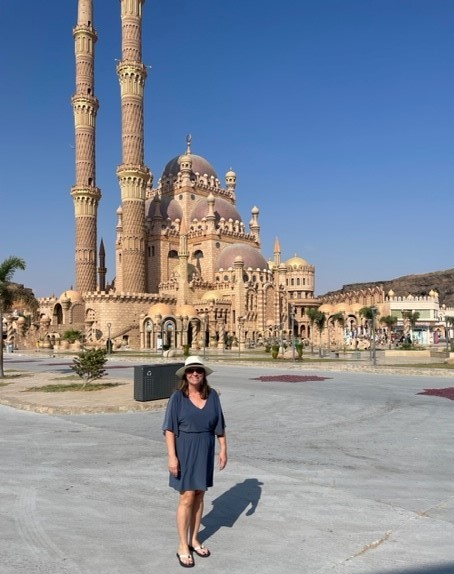
Our world currently houses the greatest generation of youth that history has ever seen – 1.8 billion young people between 10 and 24 years old who are taking an active role in recognizing both the hazards and hope associated with climate change.
Young people are already playing a key role in the fight against climate change. They possess an array of skills, ranging from education and science to technology, which they use as powerful instruments for action – acting not only as victims but also entrepreneurs, innovators and agents of positive transformation. Their contributions demonstrate how younger generations can lead us towards more sustainable solutions that accelerate progress on tackling this global challenge.
Thanks to Kim for sitting down to talk with us. If you’re interested in learning more about Cop27 and the key takeaways, check out this blog!
Here’s a Snapshot of the Work Being Done
The National Wildlife Federation has been actively collaborating with K-12 students, educators, volunteers, and local partners to support efforts to create more climate-resilient communities. These projects promote solutions that address issues like coastal flooding, habitat and biodiversity loss, and environmental injustices that often disproportionately impact vulnerable communities. Read more about some of the work happening across the country:
- The Broward Habitat Connectivity Project and the Broward Youth Climate Summit
- The Climate Resilience Education Task Force and Youth Steering Committee in NYC
- Earth Tomorrow, the National Wildlife Federation’s longest-standing environmental justice education program
- The Eco-Green collaboration between General Motors & the National Wildlife Federation
- Climate-focused work nationwide through the Eco-Schools pathways
- The Resilient Schools Consortium (RiSC) in New York City
- Faith-based community engagement and habitat/pollinator restoration through the Sacred Grounds program.
- Nationwide habitat restoration and outdoor classrooms through the Schoolyard Habitats® program
- Student Climate Resilience Ambassadors in Houston
- Student learning about human impacts on salmon habitat through the Salmon Stewards program in Oregon

In addition, the NWF EcoCareers Summit Series focuses on a critical component to finding solutions to the climate crisis—supporting youth and young professionals with information and trends related to careers in the green sector.
What We Are Reading

From the Winter 2023 issue of National Wildlife® magazine:
- Making My World shares the stories of four Black conservationists that reflect their deep passion for the natural world;
- Next Generation: Megan Harwell highlights the importance of understanding human behavior as it relates to community partnerships and wildlife conservation.
Join the Worldwide Teach-in on Climate and Justice
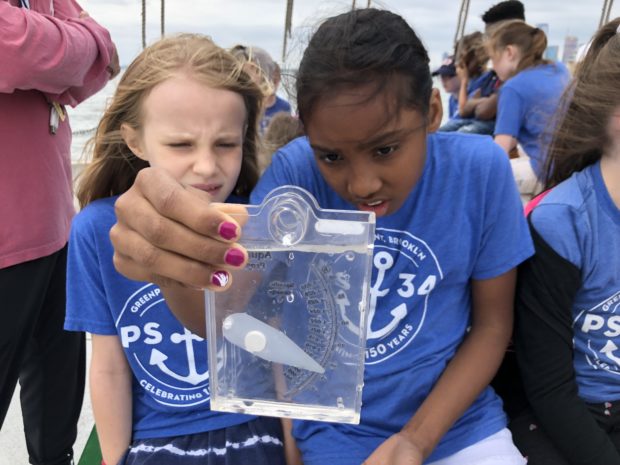
The countdown is on to the Worldwide Teach-in for Climate and Justice on March 29, 2023. Participation in this global event is one way to work towards the #Teach10Hours4Climate pledge. A Guide was created to help busy teachers find curricular resources and includes planning worksheets to help organize a 10-hour climate-focused education plan.





















